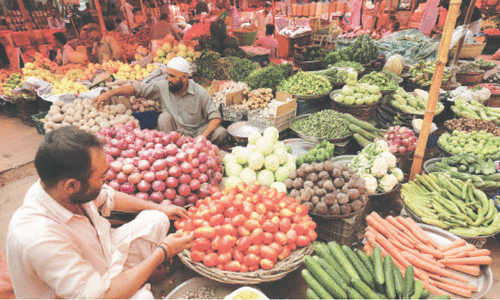KARACHI: “Look for the good in life right now, simple stuff, nothing complicated,” says Dr Shehnaz Tapal, an educator of well-being, referring to self-isolation that people are putting themselves in during the coronavirus outbreak.
For many this could mean the day beginning with a leisurely breakfast of fresh, crispy paratha accompanied with an egg of your choice; a thick cup of doodh-patti, not having to get dressed for work but chilling in your comfy clothes.
Because, warns Dr Tapal, also a yoga instructor, when people are stressed, they instinctively look for what is threatening. “We allow fear to control us and don’t see what’s good right in front of us.”
“Staying at home itself can be anxiety-inducing and be overwhelming for all,” points out Marium Ibrahim, mental health and well-being representative at the Kiran Foundation, DCTO campus.
But in the short term it may not have any adverse effect, as people will treat it as a holiday, according to professor emeritus at Aga Khan University’s department of psychiatry, Dr Murad Moosa Khan.
‘While it is important to stay informed, too much of it can become detrimental’
Still, he says: “The principle should be to err on the side of caution, defer and postpone everything”. These unprecedented and uncertain times require from us to take unusual measures. “People have to accept them. It’s like being in a war!”
Maintaining a routine
And that is why, to keep sane, it was important for everyone to maintain a steady routine. “Wake up at the same time every day, make sure you and your kids get dressed for the day, brush your teeth and eat three meals on time. Also, try to maintain a structured schedule throughout the day,” says Ibrahim who works with children aged two to 12.
But parenting can become overwhelming. So Ibrahim tells parents it is important to have “some compassion” for themselves. “It’s a scary time, and you are doing your best to keep your kids safe and healthy. It’s okay to just let them sit (supervised) in front of the TV or computer, or to let them figure out how to entertain themselves too. They’ll be okay,” she says.
News onslaught
“Stop watching the news incessantly as you’re only feeding your anxiety!” recommends Dr Tapal.
Yoga therapist Tassy Moochala has taken to an eight-hour fast from social media to keep herself less exposed to the “doomsday scenarios of suffering”. Ibrahim suggests limiting your exposure to the coronavirus through the media, to once or twice a day. “While it is important to stay informed, too much of it can become detrimental!” she warns.
Follow your passion
But this period may be used as an opportunity to “simplify your life from consumerism and materialism” says Moochala and urges people to “Marie Kondo [Japanese organising consultant] your house — spring cleaning, sorting, organising and clearing wardrobes and storerooms.
But if that is not exciting, she suggests it may be a good time to visit top museums virtually or organising or digitising old photographs.
Dr Tapal offers her own to-do list. “Try a new recipe, read that book that’s been sitting on your shelf for 2+ years, repurpose all those old wedding cards, write poems...” to which Ibrahim adds: “Make TikToks or sign up for Coursera”.
Ibrahim practises yoga and suggests focusing on things that bring peace, and joy. “Of course, that’s easier said than done, but just try to focus on your body and its reactions: when do you start to feel more anxious; what makes your heart rate calm down. Take deep breaths and pay attention to how your breath fills in your stomach.”
Instructors Dr Tapal and Moochala both agree that simple breathing practice, trying exercises (through online workout tutorials) can help keep you calm. Moochala who plans to spend more time on the yoga mat to “strengthen my own yoga practice” also intends using this time to self reflect.
Isolation for older generation
However, social distancing is likely to breed “boredom, extreme loneliness, getting totally consumed by our own thoughts”. Moochala fears it will likely have a much bigger impact on the older generation. “As they are more dependent on others for their own care, the isolation will do them more mental harm.”
For those suffering from mental illnesses, she says, “motivation will be the biggest hurdle when alone”. And because they are spending more time at home, they will also be exposed to the media and be bombarded with information on latest statistics on death rates and rising numbers of Covid-19 patients, as well as gloomy projections. “The mass hysteria created will only cause them more anxiety,” she says.
That is why, Dr Khan says, it is a good time to support one another. “Call people to find out how they are doing and if they need any help. Reach out to your neighbours. That is a great psychological measure.”
Silver lining to isolation
And yet there are merits to this enforced isolation. “This enforced time will allow us to rediscover the simple joys of doing activities together with the family such as making meals together, playing games, and simply spending more time talking to one another. Relationships can be strengthened,” says Moochala.
“Absolutely!” agrees Ibrahim. “Since everyone is home, make the most of it by making household tasks a communal activity. View this time not as forced isolation, but a time for connecting, building stronger bonds within your family,” she says.
But for those living alone, this can be particularly isolating, says Ibrahim. “Keep in touch with friends and family over the phone and social media, and try to stick to your daily routines. Notice what makes you feel more anxious, or down, and try to distract yourself as much as you can. But for others too, who know such people, she says: “Reach out to them and make sure they’re doing okay.”
[box]
Media’s role
This is one time, said Dr Murad Moosa Khan, when the media can play a really useful role. He has a few suggestions:
They should stop sensationalising, stop putting out four news bars on their channels. One slow moving should be sufficient.
No flashing of news blurb every few seconds as they tend to do. It causes anxiety in people.
Reporters and news readers should report calmly. Most speak in a really heightened state, raising the anxiety of the viewers.
Negative news about number of cases and deaths should be balanced by positive reports of what steps are being taken.
Educate the public by simple, practical messages. Keep in mind the viewers include those who are abjectly poor, may not have access to soap or clean water, who may change their clothes or have a bath once a week or once a month only and may also include those living on the streets.
Give practical tips to what people can do at home like taking up a hobby, reading, listening to music, playing board games with family, watching TV in limited amounts, using mobile phones in a limited manner, doing physical exercise — using rooftops, corridors, or even in the room. Messages should say these are essential but temporary measures.
Both the government and the media should remain honest and transparent. Where they don’t know they should say so, but also that as soon as they receive information they will share it. And they should.
Published in Dawn, March 22nd, 2020
















































